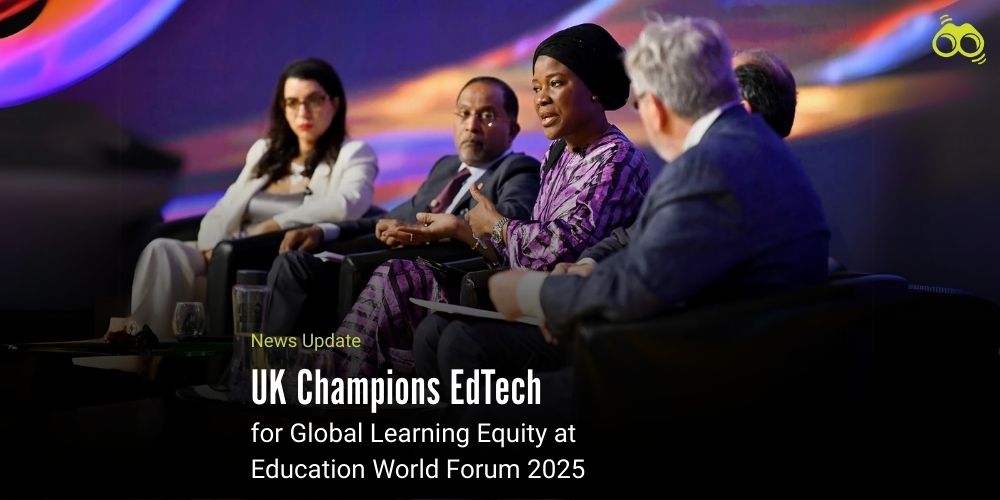AI-Powered Education: The Future of Learning at the Education World Forum 2025
Revolutionising Education: EdTech’s Role in Expanding Opportunity for All Children
At the Education World Forum 2025, Education Secretary Bridget Phillipson delivered a keynote address highlighting the transformative potential of education technology (EdTech) in expanding access and improving learning outcomes globally. As the world’s largest gathering of education ministers, the forum served as a crucial platform for shaping the future of education through technology, innovation, and international cooperation. In her speech, Phillipson underscored the symbolic significance of the forum’s location. She referred to the nearby Methodist Central Hall, where the United Nations General Assembly first met nearly 80 years ago, as a reminder of global unity.
She also evoked the legacy of Westminster Abbey, which commemorates intellectual and literary giants such as Isaac Newton, Stephen Hawking, Charles Darwin, Jane Austen, the Brontë sisters, and Charles Dickens. Reflecting on Dickens’ work, she expressed admiration for his portrayal of social injustice and identified with the struggles of his characters. While acknowledging the societal progress made since his time, she asserted that persistent inequalities, both in the UK and globally, continue to hinder access to opportunity.
Throughout the forum, education leaders from more than 100 countries highlighted the urgent need to address the global education gap. With 250 million children still out of school and 70% of learners in low- and middle-income countries struggling with basic literacy, the scale of the challenge was clear. The long-term educational disruptions caused by the COVID-19 pandemic further compounded these difficulties. Technology was widely recognised as a crucial enabler of educational reform. However, speakers consistently affirmed that it cannot substitute the role of skilled teachers, who remain central to student success. The UK government reiterated its commitment to EdTech and artificial intelligence (AI), particularly through projects like Oak National Academy, which helps teachers plan personalised lessons using AI tools.
To tackle declining attendance, the UK deployed AI-driven tools that enabled schools to identify and intervene in attendance issues early. As a result, three million fewer school days were lost compared to the previous year. In addition, the UK announced its partnership with the OECD to develop global guidelines for the safe and effective use of generative AI in education. It also confirmed plans to host an international summit on AI in education in 2026 to support practical implementation.
Recognising the importance of research and accountability, the UK pledged over £1 million to evaluate the impact of EdTech in schools and colleges. With support from the Education Endowment Foundation, the initiative aims to ensure evidence-based policymaking. Finally, the UK reaffirmed its global leadership in education technology by announcing a refreshed International Education Strategy, centred on collaboration, innovation, and shared expertise. The forum underscored the collective responsibility to ensure that technology serves as a bridge, not a barrier, to equal educational opportunity for all.
Editor’s Note
The Education World Forum 2025 brought to light a vital truth: technology, when guided by thoughtful leadership and grounded in evidence, can significantly improve access to education. With the UK reaffirming its commitment to EdTech and artificial intelligence, it is encouraging to see education policy moving beyond promises and towards action. Tools like AI-powered lesson planning and data-driven attendance interventions have real potential to ease teacher workload and support students more effectively. However, technology must always serve as a tool, not a replacement for the human connection that defines great teaching. As leaders spoke of opportunity and equality, it was a timely reminder that EdTech should not widen gaps but help close them. With meaningful investment in research, collaboration, and implementation, we have the chance to ensure every child, regardless of background, can access a high-quality education fit for the future.
Skoobuzz highlights that the Forum offered a hopeful vision where technology, used responsibly and inclusively, can be a powerful force for educational equity.














0 Comments (Please Login To Continue)